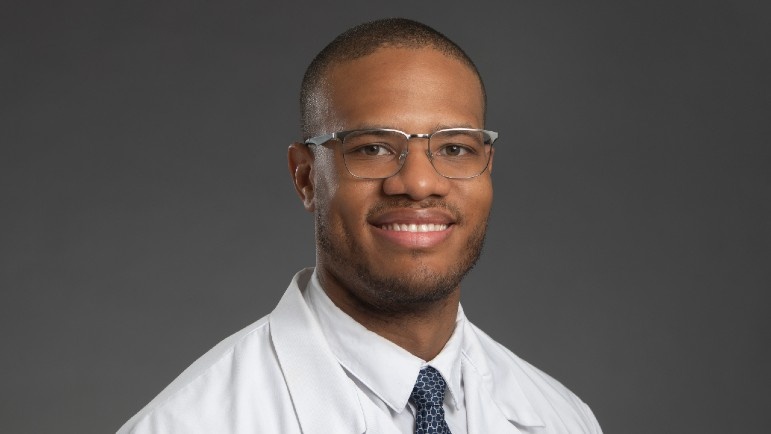By Christopher Hicks, MD
Physical Medicine and Rehabilitation Residency | 2014-18
Founder and Former Chair | RUSH GME DEI Committee
My time as a resident at RUSH was incredible. The diverse patient population, which is comprised of residents from Chicago’s West Side who have various backgrounds and experiences, and RUSH University Medical Center’s proximity to the Loop and Near North Side enriched my training as a physician. I deeply value this experience, which has enabled me to work in diverse areas and regions and provide comprehensive patient care regardless of background. I feel comfortable taking care of patients from all over the world and have the knowledge to ask questions about their life experiences, allowing me to provide the best care possible. My most memorable moments during my Physical Medicine and Rehabilitation Residency at RUSH were spent with my co-residents during long hours on inpatient floors and call nights. Despite the challenges, sharing these experiences with my peers was enjoyable. Connecting with patients and learning their stories was another highlight, teaching me valuable lessons that I continue to appreciate in my practice today.
After completing my residency at RUSH, I joined the University of Virginia Sports Medicine Fellowship Program, where I served as a team physician for two national championship teams in basketball and lacrosse in 2019. Following that, I worked at the University of Chicago Orthopedic Department as a nonoperative sports medicine physician and team physician for the 2021 WNBA champions, the Chicago Sky. Currently, I am part of Northwestern Medicine's top-ranked Orthopedic Department, serving as a nonoperative sports medicine physician and the medical director of our Athletic Training and Sports Performance Departments.
During residency, the RUSH GME DEI Committee initially formed as a social group for underrepresented minority physicians to connect and build relationships. However, we soon recognized a larger issue: the lack of diversity among our trainees and attending physicians despite serving a diverse patient population. Tasked by Dr. David Ansell, the committee set a goal to align the diversity of our residents and fellow physicians with the patient population at RUSH. This mission, though challenging, was an honor. My inaugural co-chair Dr. Amoah Yeboah-Korang and I met with residency program chairs, presented data and improvement plans for diversity, faced initial resistance and had challenging discussions during the transition. With support from the GME Office, led by individuals such as Mashonda Daniels, director of graduate medical education at RUSH, we started implementing changes.
The RUSH GME DEI Committee initially formed as a social group for underrepresented minority physicians to connect and build relationships. However, we soon recognized a larger issue: the lack of diversity among our trainees and attending physicians despite serving a diverse patient population.
As one of the few Black men in my profession, I've grown accustomed to being a minority in educational and professional settings. This experience sometimes made me question my sense of belonging, especially during my undergraduate and medical school years. Growing up in a neighborhood of lower socioeconomic status on Chicago's South Side, which was plagued with poverty and violence, provided me with real-life education on survival, resilience and “making something out of nothing.” When I learned to appreciate my upbringing, instead of being ashamed of it, I realized my community made me who I am. Giving back to my community and communities like it became my obligation. I made a commitment to myself from that point forward, dedicating myself to working for diversity, equity and inclusion, which has only strengthened my passion over time. During medical school, I took on community and diversity work as co-president of the Student National Medical Association, which focused on serving minority communities and supporting the matriculation of minority medical students. This role deepened my commitment and passion. When presented with the GME DEI Committee opportunity by Dr. Ansell, I eagerly accepted, seeing it as another way to give back to communities like the one that shaped me.
Being a doctor is a privilege. It's a profession where people from all backgrounds, no matter their upbringing, background, socioeconomic status, job description or place of residence, rely on you for their health. You meet diverse individuals, care for those in need and provide empathy every day. It's fulfilling to provide care and be trusted during vulnerable times. I don't take this responsibility lightly and strive to be the best physician possible, learning from each patient experience. On Doctors' Day, I celebrate by giving my best care to each patient. It's a blessing to connect with and understand individuals, knowing you've made a positive impact on their health and well-being.

